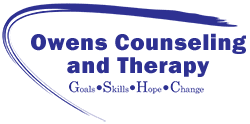
By: Kaleigh Nobbe, Clinical Intern
Oh, I’m sorry… but am I?
It is a simple statement that we often feel will help others react in a more positive way to whatever the situation may be.
Lost a loved one? Sorry. Are you sad? Sorry. Did I say no? Sorry.
It is an easy response and one that we have learned will often express how we too dislike the circumstance or outcome. However, telling people we are sorry can also send a message to ourselves that we have done something wrong or caused harm, eliciting us to feel guilt or shame. As a matter of fact, we could benefit from apologizing less and choosing more accurate responses to the situation. Often, people apologize to avoid conflict or because they have difficulty tolerating someone being angry with them, so they apologize to smooth things over or keep the peace. Here is an important point to keep in mind: if you apologize for every little thing, you may appear insincere when it comes to a situation where an apology is warranted.
In Dialectical Behavior Therapy (DBT), we learn how over-apologizing can send messages that “I am wrong” instead of communicating in an accurate and effective manner. Some examples of what not to apologize for can include our needs, our emotions, other’s emotion, saying no, and more. Building mindfulness around over-apologizing can help you to break the habit and raise your self-respect. You can read more about DBT here How DBT Works. If you feel like you or a loved one would benefit from learning DBT skills, Owens & Associates has therapists trained in teaching DBT skills either in individual or group settings. We currently have three DBT skills groups on Saturdays at our Lake in the Hills office. Members meet in person and via Zoom.
Breakfast Club– DBT skills group for high school aged teens. 10am Saturdays.
Weekend Warriors- DBT skills group for middle school aged adolescents. 12pm Saturdays.
Stronger Together– DBT skills group for adults 18 and older. 11am Saturdays.
For more information on the hidden messages you may be telling yourself or others, call
Owens & Associates at (847)854-4333 to schedule a free 15-minute consultation.
For more information on Saturday groups, you can call our office at (847)854-4333 or contact our group leaders at lori@owenscounseling.com, kaleigh@owenscounseling.com, or jacki@owenscounseling.com.
